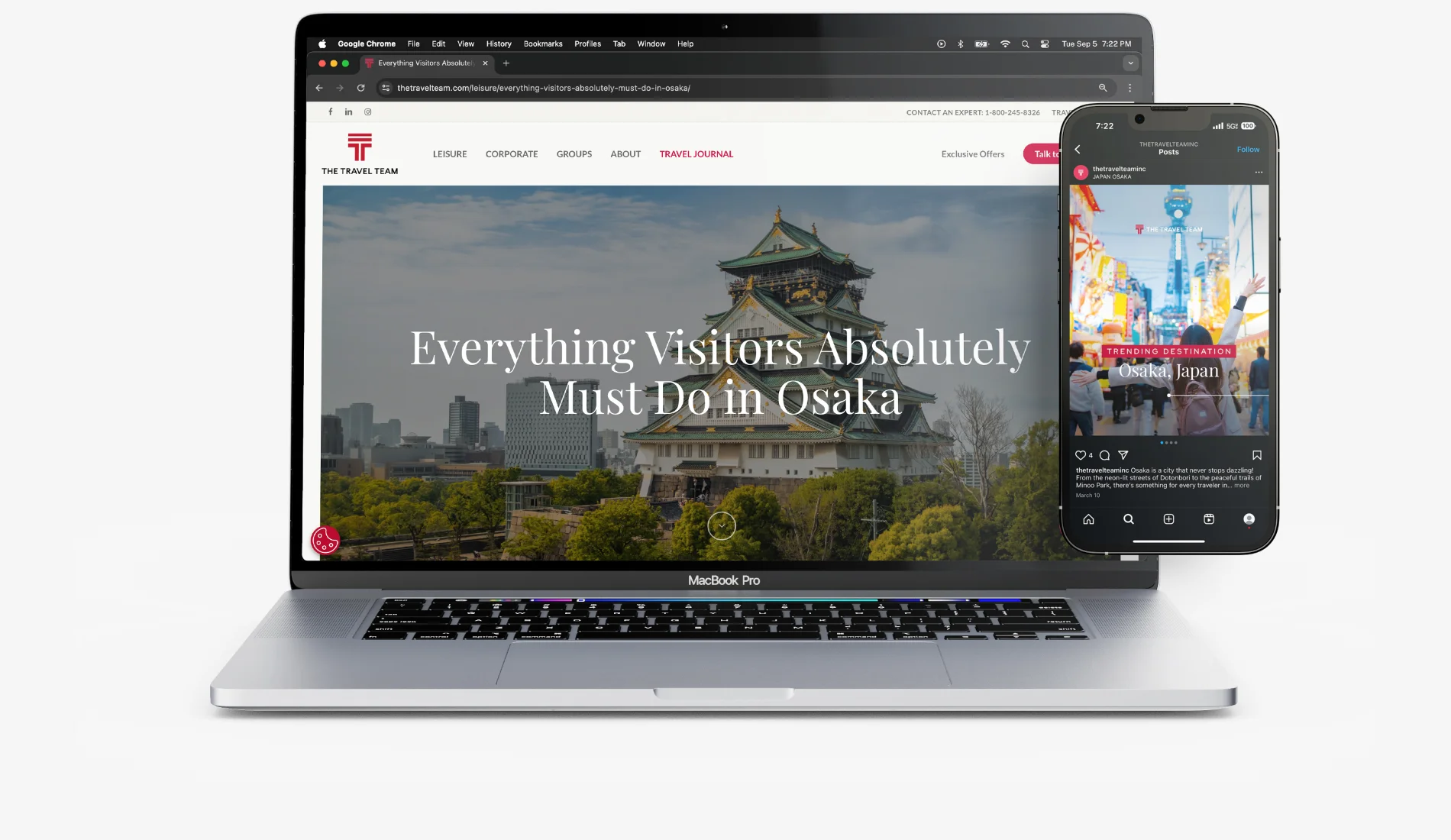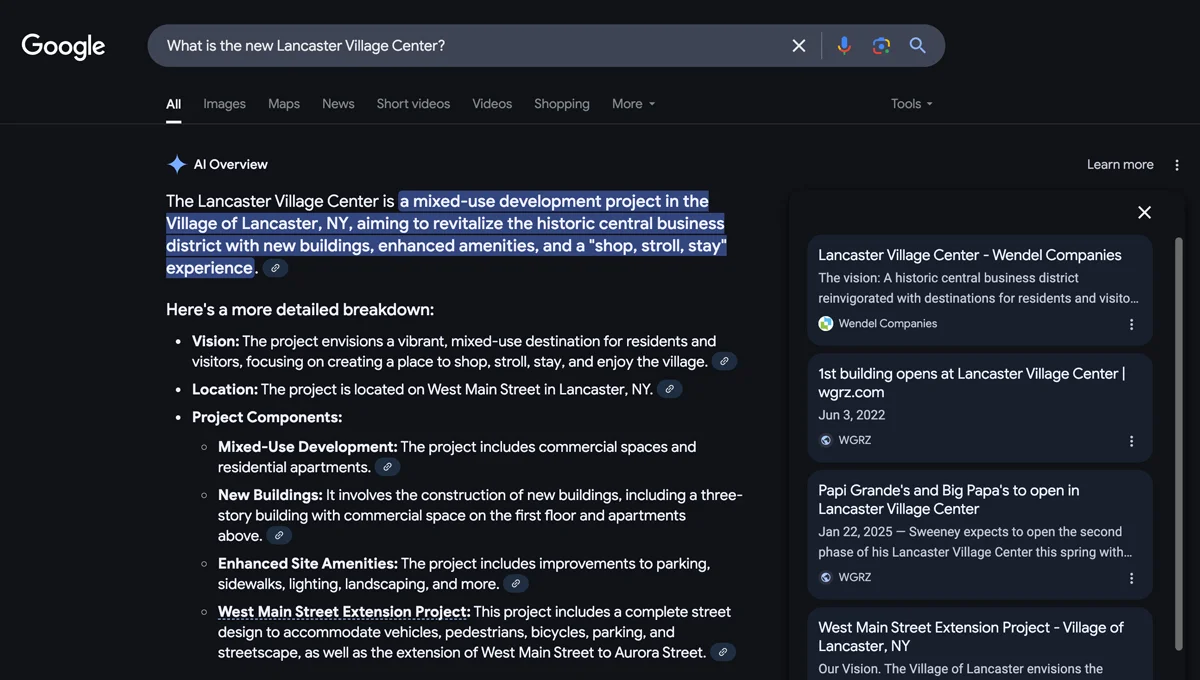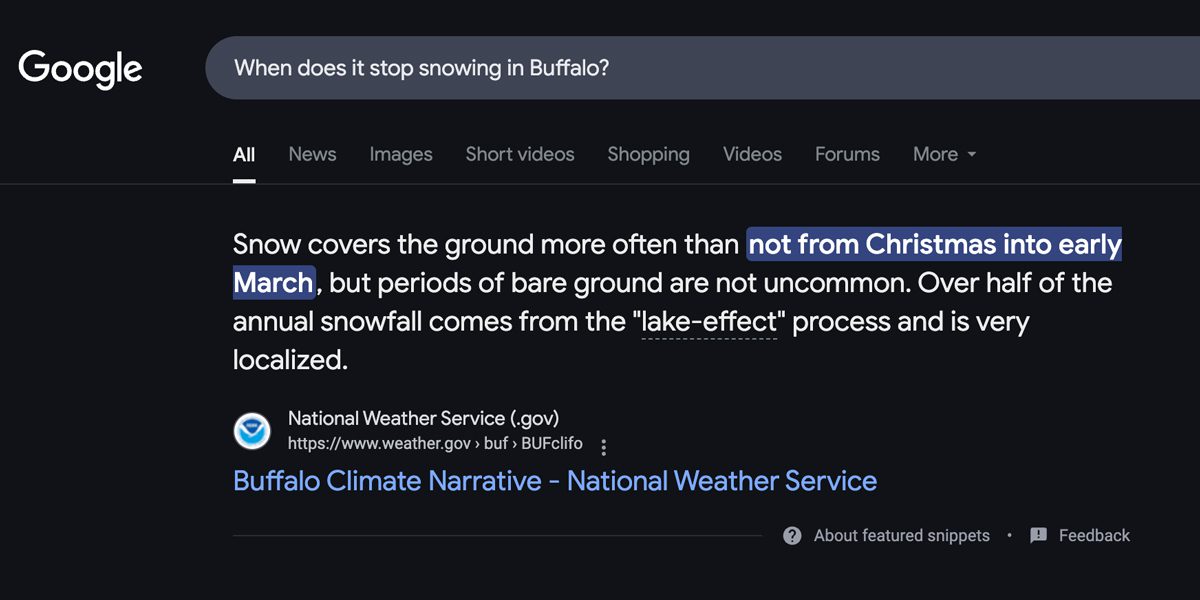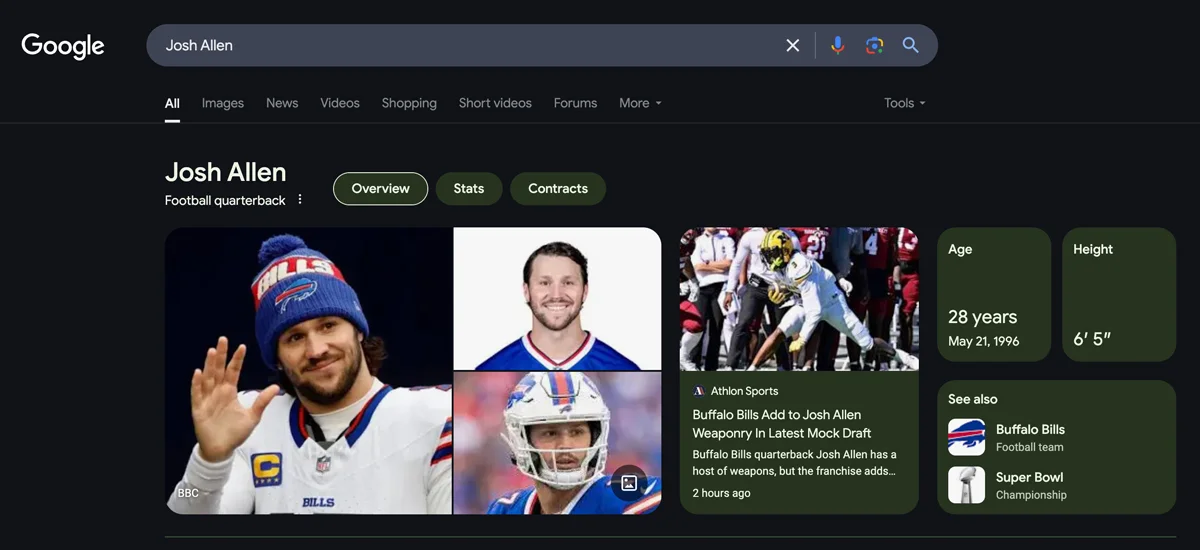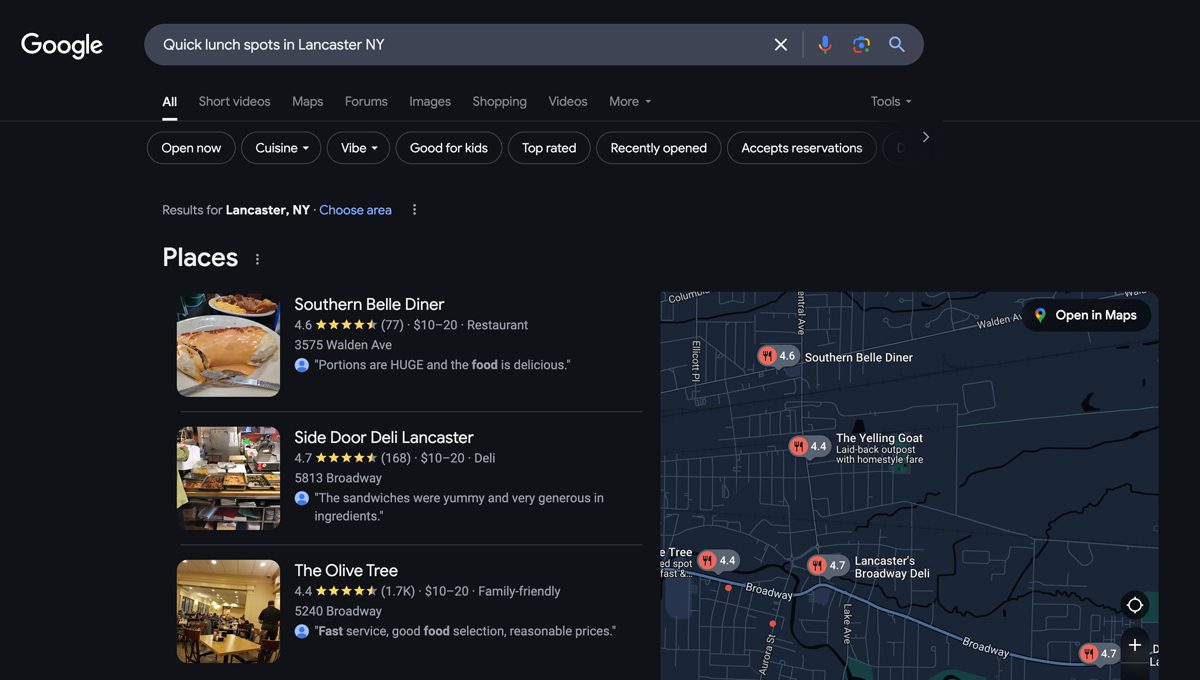If you’ve noticed search engines behaving differently lately, you’re not wrong. How and where people search for information is changing, and the search results are shifting in response. Businesses with an existing SEO strategy will recognize this simplified version of the process that’s shaped the field for years:


Now, this process is being disrupted.
AI and other technologies allow users to get answers to more complex questions, often without leaving the search result page. AI Overviews, knowledge panels and featured snippets offer quick responses at a glance, so users might not even need to click through a website to find the information they’re looking for. These changes have led to the rise of what are called “zero-click searches,” or queries where users find what they need directly on search engine results (SERP) pages.
What Are Zero-Click Searches?
Zero-click searches occur when users find the answers they’re looking for directly on the results page, without visiting any additional websites. Search engines like Google and AI platforms like ChatGPT have even been nicknamed “answer engines” because of how adept they are at providing quick, direct answers within their interfaces.
“
Zero-click searches are powered by search engines’ ability to extract, structure and display key pieces of information directly on the results page.
Think about the last time you Googled something. You probably got a response that included at least a couple of these features:
How Zero-Click Searches Affect SEO
Zero-click searches are powered by search engines’ ability to extract, structure and display key pieces of information directly on the results page. Users often want immediate answers and search engines have adapted to deliver them. Features like AI Overviews and featured snippets provide concise, high-value responses without requiring users to visit a website. As a result, nearly 60% of Google searches now end without a single click. That probably sounds concerning, especially if you’ve poured time and money into SEO. Some might even question whether it’s worth continuing SEO efforts.
So What’s the Point of SEO Now?
Abandoning SEO, even if you’ve experience a decline in organic traffic, is actually the worst thing you can do. That’s because SEO is still the best strategy for remaining visible within the search results. If you stop creating and optimizing original content, you won’t just see less organic traffic—you may lose visibility altogether. Plus, any competitors who still practice SEO will end up filling in the space you no longer occupy on the SERPs. Instead of focusing solely on SEO as a tool for growth, brands need to shift their mindset and recognize SEO as a way to protect visibility and maintain brand awareness, in addition to a strategy for website traffic and direct conversions. Your digital strategy should always aim to meet users where they are, both on and beyond the search results page.
One of the most significant takeaways from recent research is how AI Overviews have changed which pages on your site matter most. Historically, homepages were the most critical. And don’t get us wrong, they’re still important. However, nearly 83% of citations in AI Overviews link to deep content pages, which are pages at least two clicks away from the homepage. This means that all of the content across your site plays a role in organic search success.
How to Adapt for Zero-Click Searches
Maintaining a strong organic search presence helps ensure that when users need information beyond an AI summary or are ready to make a purchase, your business is top of mind and easy to find. Here’s how we’re approaching content right now.
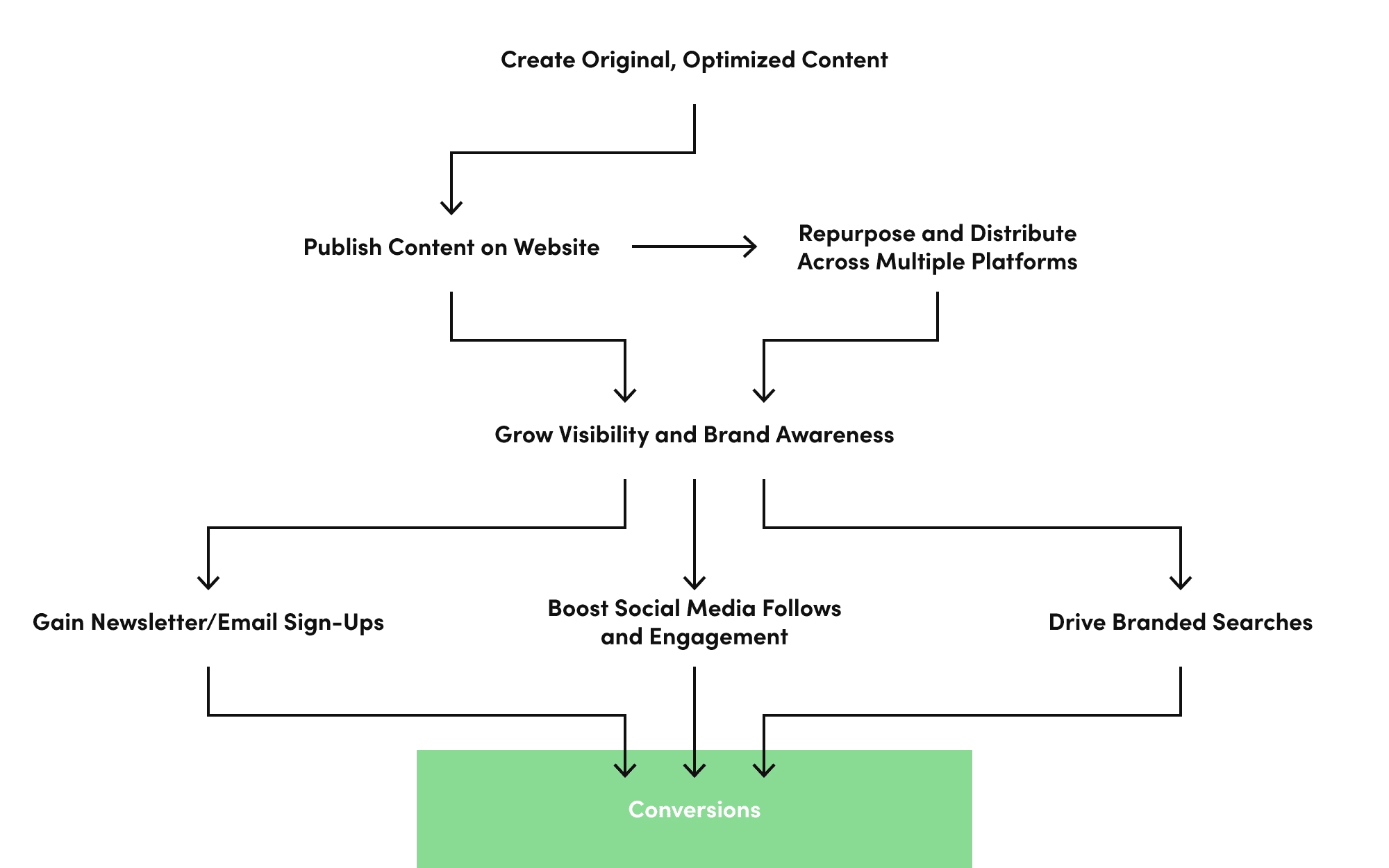
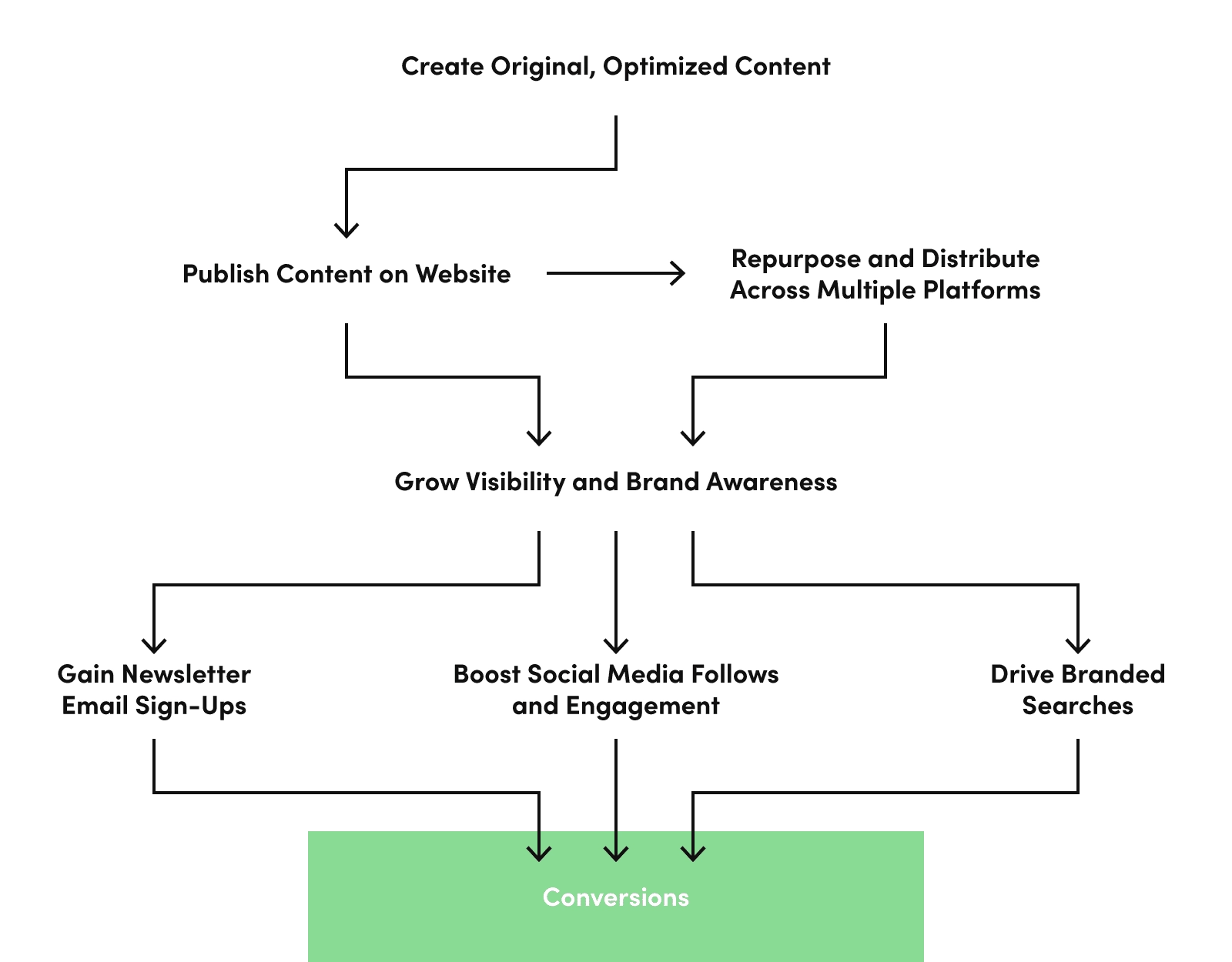
Optimize for AI Overviews and Snippets
These summaries get prime real estate on SERPs. When search engines reference your content in these sections, it appears above traditional organic search results, making your brand one of the first things users see. To increase your chances of being featured:
- Figure out what your audience wants to know and address it completely, without getting unnecessarily complicated. Try to answer commonly searched questions and explain key concepts in 40 to 60 words somewhere within your content.
- Break up content like blogs into sections organized with headers, bullet points and numbered lists. This makes it easier for search engines to pull information directly from your page.
- Add an FAQ section to your website. Focus on answering high-intent, niche-specific questions your audience is actively searching for. Tools like Answer the Public and ChatGPT can be helpful here.
Focus on Building Brand Awareness and Authority
When searchers encounter your brand in an AIO summary, knowledge panel or local pack, it may not always result in a click. That doesn’t mean your brand hasn’t made an impression, though. Fostering brand awareness and authority helps ensure your business remains top-of-mind when users are ready to take action. In the meantime:
- Start or continue creating high-quality, authoritative content. Whether it’s blogs, social posts or videos, make sure your content demonstrates your expertise and provides real value to your audience.
- Write content that emphasizes EEAT: experience, expertise, authoritativeness and trustworthiness. All content you publish should be accurate, well-researched and backed by credible sources.
- Use consistent, recognizable brand elements across platforms to help users remember your business.
Prioritize User Experience
Even in a zero-click world, user experience remains a critical part of SEO. When users do end up on your website, you want them to have a positive experience. Making it easy to find information, compare products or services, and finalize purchases all improve the chances of a conversion. Converting visitors signals to Google that your site is high quality and deserves a place on relevant SERPs. Improve your site’s user experience by:
- Fixing slow pages so users can navigate and engage with your site quickly. Slow load times often lead to high bounce rates, which can negatively affect how and where your site appears on search engines.
- Optimizing your site for both desktop and mobile. Having a responsive site that adjusts to various screen sizes allows searchers on any device to access your site with ease.
- Making your content easy to access and read with short paragraphs, clear headers and plenty of white space.
Despite zero-click searches reducing website visits from organic search, it’s very possible the traffic websites do get is higher quality. The users who do click through are more likely to be highly engaged and ready to contact a business, purchase a product or book a service. Take Eastman Machine Company. Despite a year-over-year decrease in organic website traffic, the cutting machine company has seen a dramatic increase in engaged sessions and conversions from organic search.
Eastman Machine Company
↑ 16%
↑ 20%
Diversify Content Across Multiple Platforms
Google used to dominate online searches and did so without much competition. Things are a little different now. Users are increasingly using TikTok, YouTube Shorts and Instagram Reels to find content that answers their questions. If your audience spends a considerable amount of time using these platforms, it makes sense for you to be there too.
- Create video content optimized for search with relevant keywords in titles and descriptions.
- Turn top-performing blog content into videos, infographics or social media posts to maximize reach.
- Interact with audiences on social media by liking or responding to comments and direct messages.
